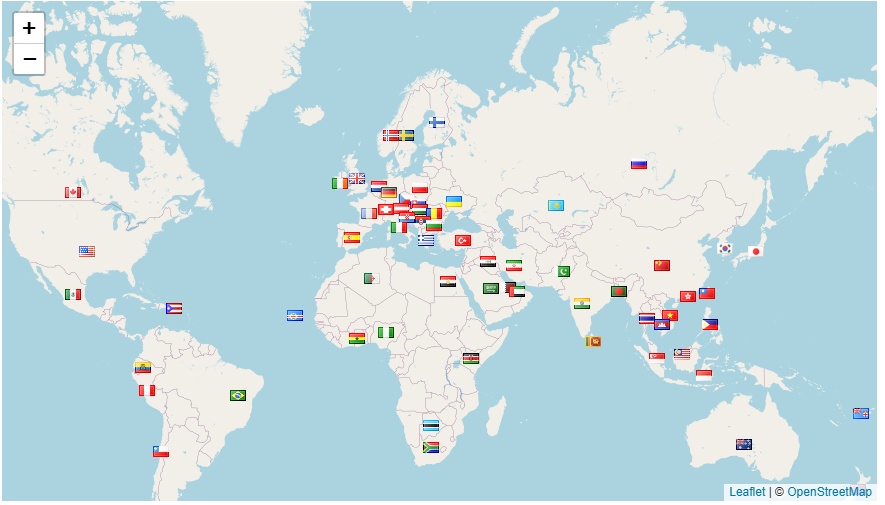Nigerian Construction Industry Reforms and Private Sector Involvement: X-raying Cost Engineering Roles in Sustainable Infrastructure Procurement
DOI:
https://doi.org/10.70822/journalofevrmata.v3i01.71Keywords:
Private Sector initiatives, Procurement, Quantity Surveyors, Sustainable InfrastructureAbstract
This study examines the essential financial oversight cost engineering functions performed in the procurement of sustainable infrastructure. This is against the backdrop of the Nigerian construction industry, which has undergone significant transformation through targeted government policies and reforms, aimed at addressing procurement gaps and enhancing infrastructure development. As a result, innovative procurement methods have been adopted to ensure sustainability in public infrastructure projects. Cost engineering and financial management functions are necessary to ensure fiscal accountability in public project procurement. A systematic review of the extant literature is carried out to x-ray cost engineering roles in sustainable infrastructure procurement. Findings indicate a shift from a predominantly public sector-led approach to one driven by private investment, presenting new opportunities for cost engineering roles. Cost engineering expertise is needed in contract administration, risk mitigation, and financial planning and is instrumental in optimizing Public-Private Partnership (PPP) agreements and ensuring long-term project viability. The study underscores the need for Quantity Surveyors, who are professionally skilled in carrying out cost engineering functions, to strategically position themselves within the evolving procurement landscape to leverage emerging opportunities. This study therefore underscores the importance of diversification, and adaptability in navigating industry shifts in the cost management of public infrastructure projects. By embracing these principles, cost engineering roles will maintain relevance in sustainable infrastructure development. There is thus a need to strengthen the connection between government policies, innovative procurement methods, with a view to catalyse cost engineering functions, and their impact in sustainable infrastructure development.
References
Cheung, Esther & Chan, Albert & Kajewski, Stephen. (2010). The researcher's perspective on procuring public works projects. Structural Survey. 28. 300-313. 10.1108/02630801011070993.
Oyedele, Olufemi. (2012). Public-Private Partnership (PPP) and Infrastructure Provision in Nigeria.
A Dairu (2015) Critical Success Factors of Public-Private-Partnership ... (PDF) African Journals Online.
Course Hero (2022) Construction Industry Rich Enough to Drive the Economy. ... Conference on PFI as a Veritable Tool For Infrastructure Development in an Emerging Economy. https://www.coursehero.com/file/p5goo7t/Public-Private-Partnerships-as-a-Veritable-Tool-for-Infrastr/
Brooke K and Thomas (2008). Parties in a Public-Private Partnership – The Way Forward
Diko M.H. (2012). Quantity Surveyors Seek Inclusion In Procurement Process. The Guardian. www.ngrwuardiannews.com – retreieved 20th November, 2012
Akin Adewo (2016) Emerging Developments In Nigerian Construction Industry: The Roles Of Quantity Surveyors. Department of Quantity Surveying, Federal University of Technology, Akure P.M.B. 701, Ondo State
Babalola B. (2006). Harnessing the Opportunities at the Grassroots to make the Quantity Surveying Profession competent in the National and International Markets. NIQS Biennial Conference in Calabar, November 22nd – 25th
Awodele O.A., Ogunsemi D.R. and Adeniyi O.O. (2012). An Appraisal of Private Sector Participation in Infrastructure Development in the Nigeria Construction Industry. The Quantity Surveyor, January – June vol. 1
Ayodeji, O & Ogunsemi, Deji & Awodele, Oluwaseyi. (2017). An examination of the management of quantity surveying firms in Nigeria. 10.13140/RG.2.2.35118.51525.
Jagun O. (2021). Climate change and global disasters; Developing sustainable infrastructures to achieve economic growth amidst declining economic resources. NIQS Biennial Conference in Abuja, November 17th – 20th
Hartenberger, U., Lorenz, D. & Lützkendorf, T. (2013). A shared built environment professional identity through education and training. Building Research & Information, 41(1), 60-76. doi: 10.1080/09613218.2013.736202
Cartlidge, D. (2017). New aspects of quantity surveying practice. Routledge
Olowookere, E. O. (1985). Construction industry in Nigeria. Journal for Building and Civil Engineering Contractors in Nigeria, 2(2), 6–10.
Idoro, G. I. (2009). Influence of Quality Performance on Clients’ Patronage of Indigenous and Expatriate Construction Contractors in Nigeria. Journal of Civil Engineering and Management, 16, 65 – 73.
Mbamali, I., and Okotie, A. J. (2012). An assessment of the threats and opportunities of globalization on building practice in Nigeria. American International Journal of Contemporary Research, 2(4), 143–150.
Osofisan A.O. (revised. 2017). Innovation as an Agent of Change in the Nigerian Building Industry; Journal of the Nigerian Institute of Building, 17-22.
CIB (2004). Globalization and Construction: Meeting the Challenges; Reaping the Benefits. Write up for the Call for Papers, http://www.sce.ait.ac.th/GC2004 [Accessed 18th July 2023].
Ameh O.J and Odusanmi K.T. (2010). Professional Ambivalence Towards Ethics in the Nigeria Construction Industry. Journal of Professional in Engineering Education & Practice.
Blaise A.M. and Manley K. (revised. 2017). Key Influences on Construction Innovation, Cooperative Research Centre for Construction Innovation Publication, 4(3), 143-154.
Babatunde S.O., Opawole A. and Ujaddughe I.C. (2016). Report on An Appraisal of Project Procurement Methods in the Nigeria Construction Industry. Civil Engineering Dimension, Vol. 14
Debbattista Mario (2005). The Public-Private Partnerships Procurement Process, Concept and Procurement Stages. https://finance.gov.mt/image.aspx?site=MF1N&ref=ppp eminar2 – retrieved 1st August, 2012.
Stephenson et al (2006). E-Procurement: An Assessment of UK Practice in Construction. Construction Industry Board Publication, 32-226.
Pakkala P. (2020). Innovation Project Delivery Methods for Infrastructure, an International Perspective.
Downloads
Published
Issue
Section
License
Copyright (c) 2025 Amadi Alolote Ibim, Kelechukwu Dimkpa

This work is licensed under a Creative Commons Attribution 4.0 International License.







